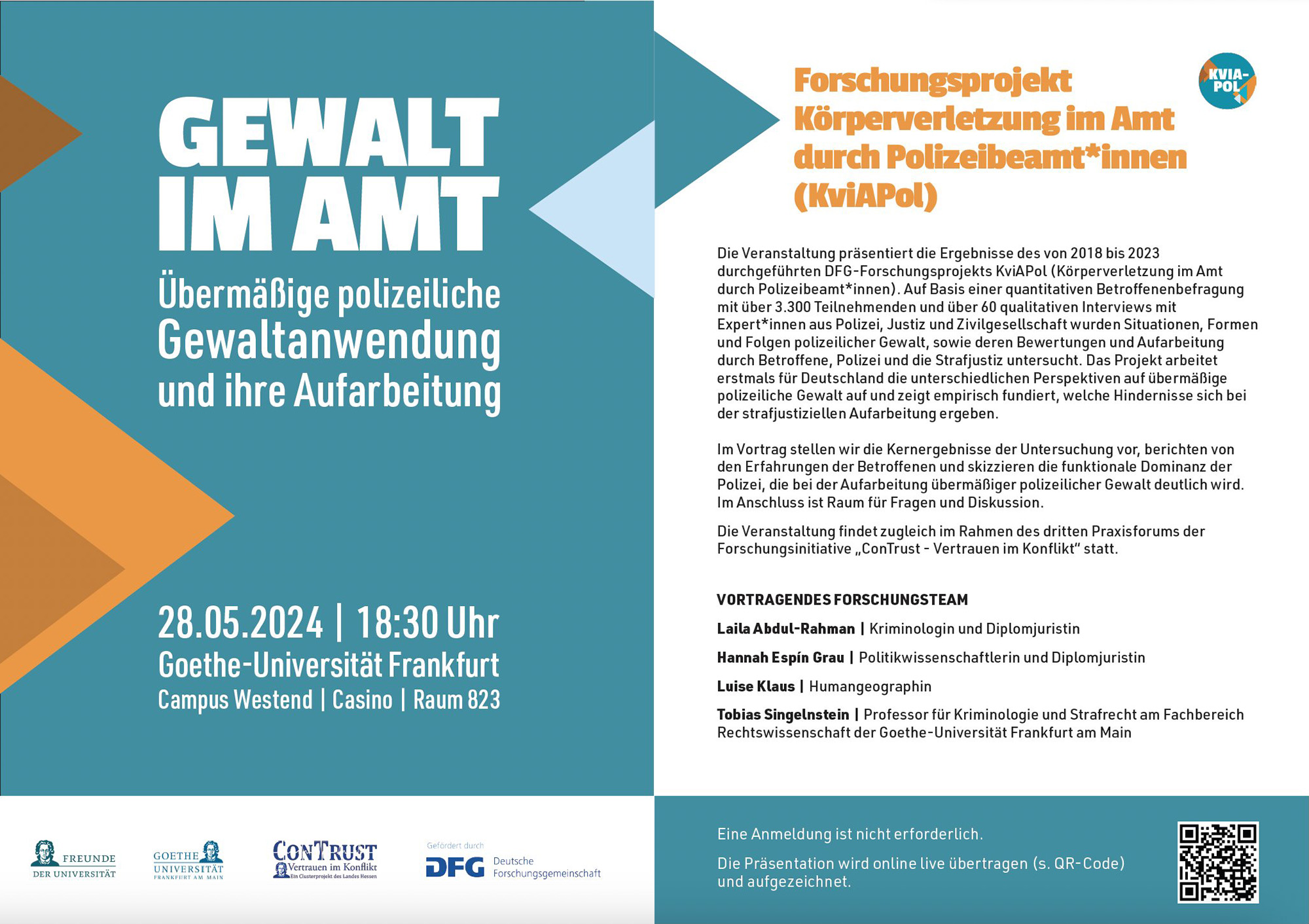Lecture and symposium on the use of force by the police
One year after the publication of the book “Gewalt im Amt. Excessive use of force by the police and coming to terms with it”, the research project “Assault in office by police officers” (KviAPol) and the research initiative “ConTrust – Trust in conflict” at the research center “Normative Orders” invite you to a symposium on “Perspectives on excessive police force and coming to terms with it”.
The event will kick off on Tuesday, May 28, at 6:30 p.m. in the Casino, Festsaal R823 with a public lecture by study director Prof. Tobias Singelnstein (ConTrust) and research assistants Laila Abdul-Rahman, Hannah Espín Grau and Luise Klaus, who will present the study results.
The actual symposium on Wednesday, May 29, from 10 a.m. to 5:30 p.m., is aimed at an interested specialist audience. Problems and solutions will be discussed in three panel sessions. It will also take place as the third practical forum of the “ConTrust” research initiative.
Further information: Here…


